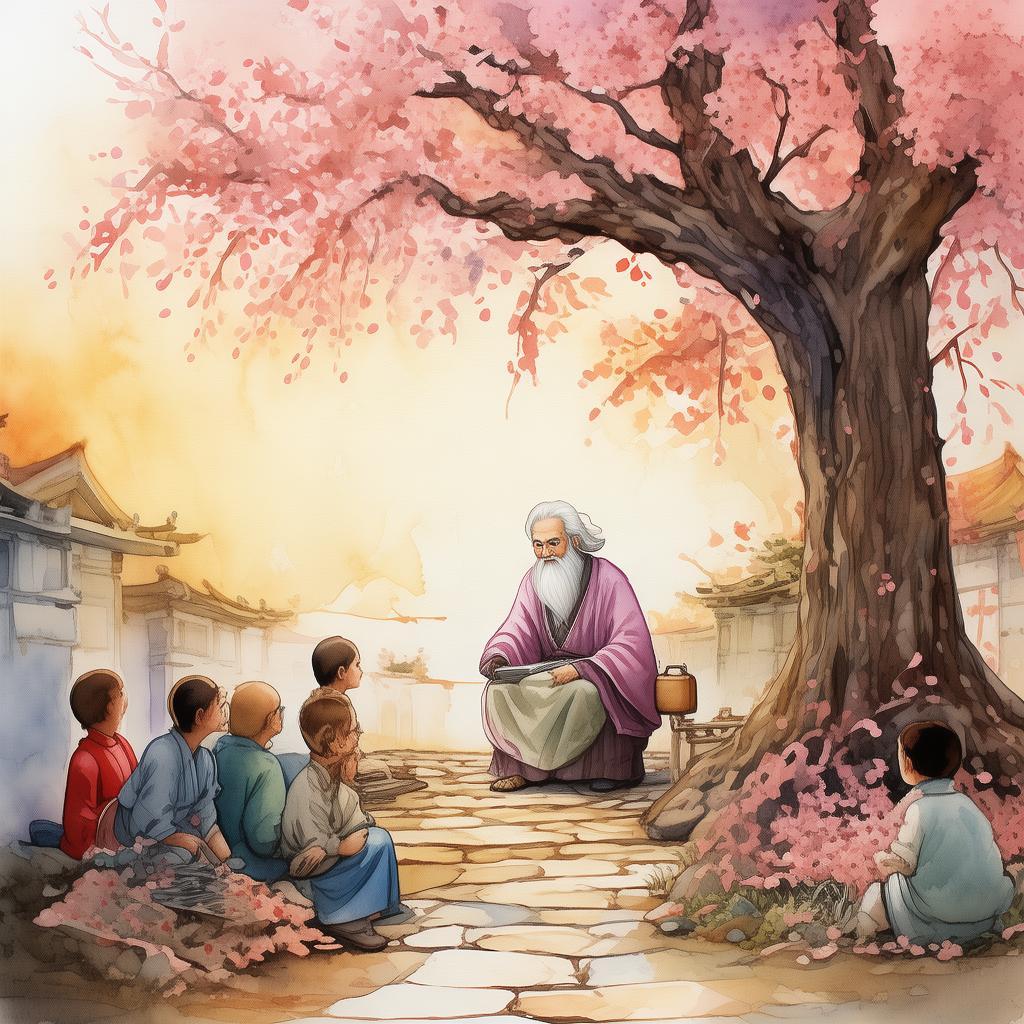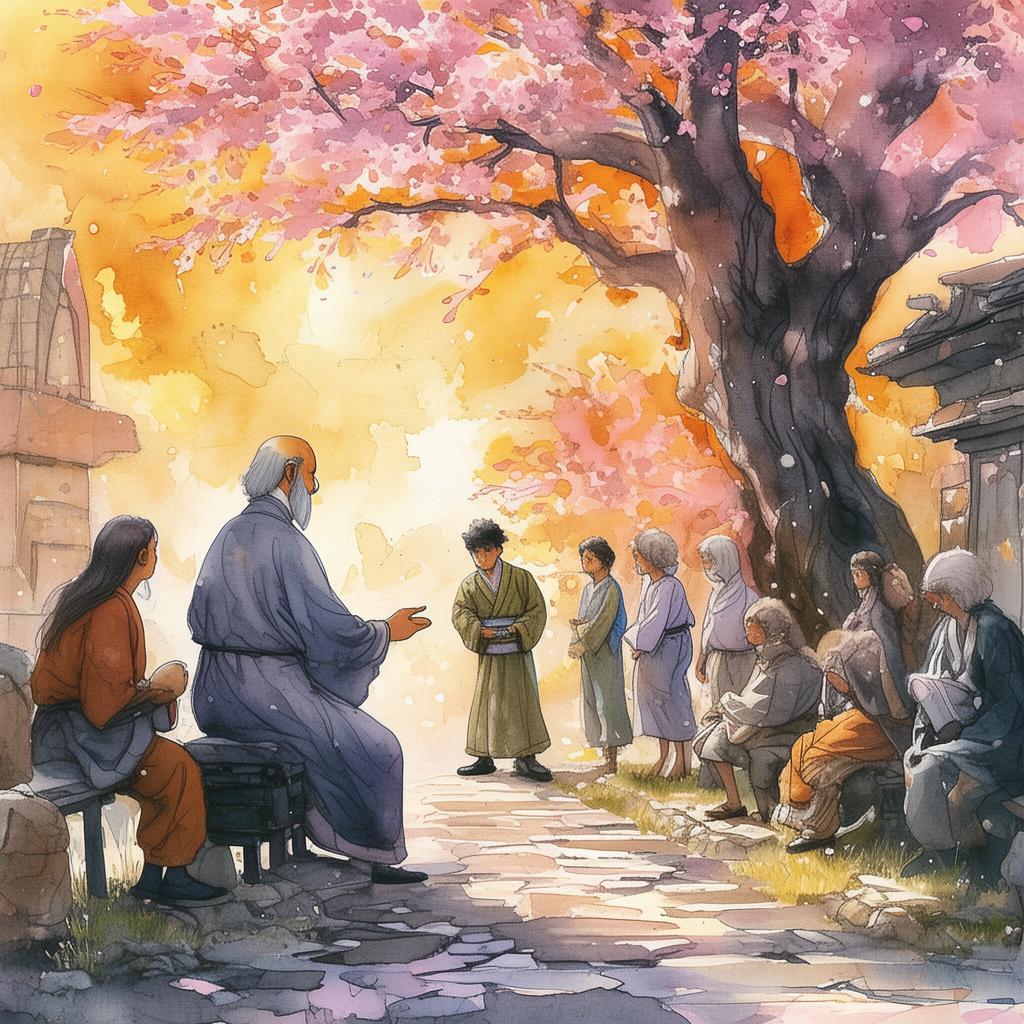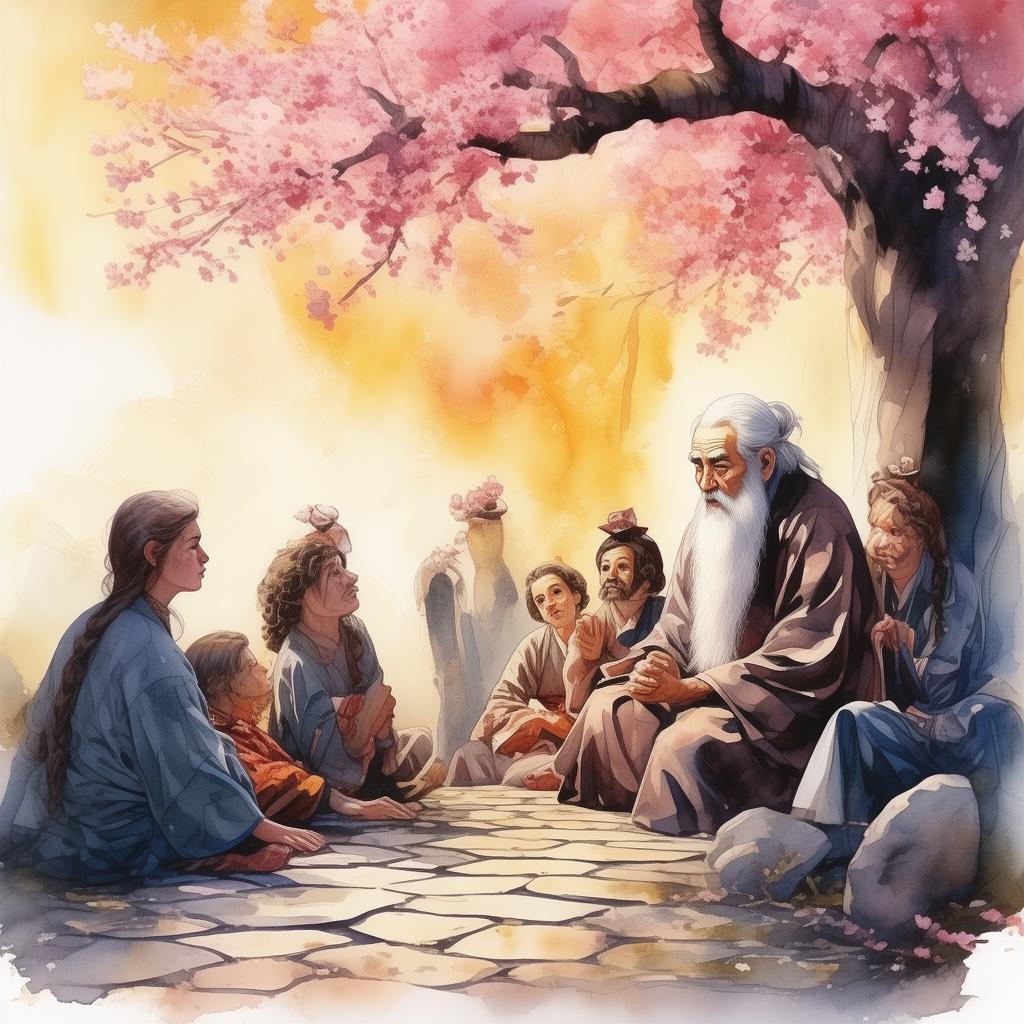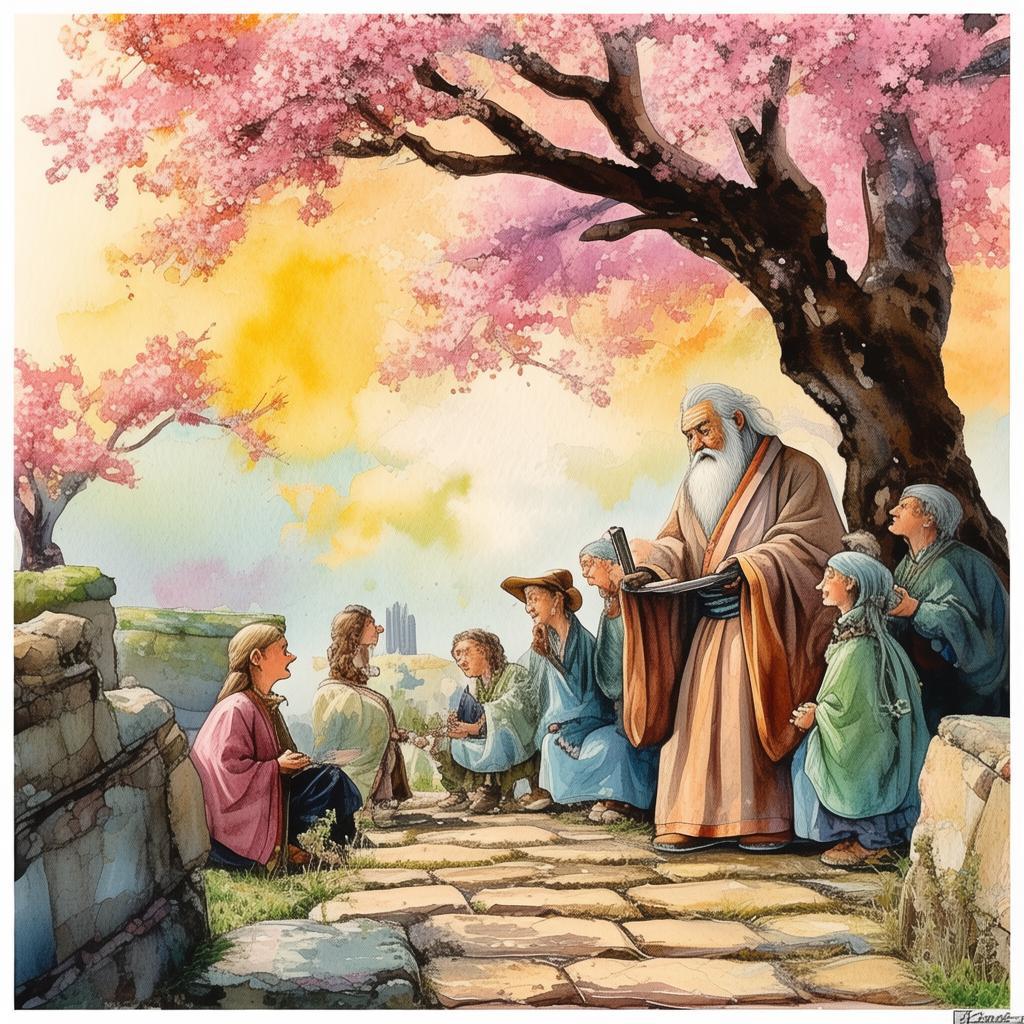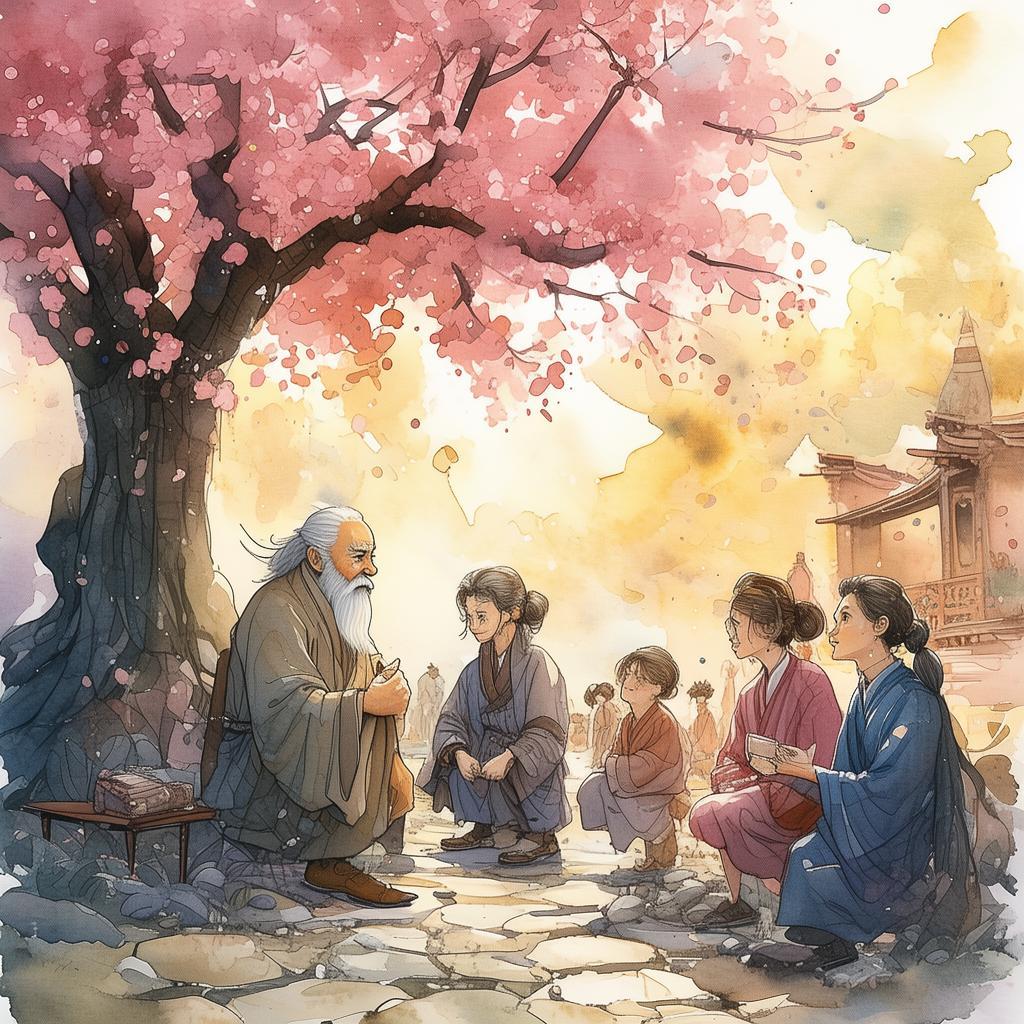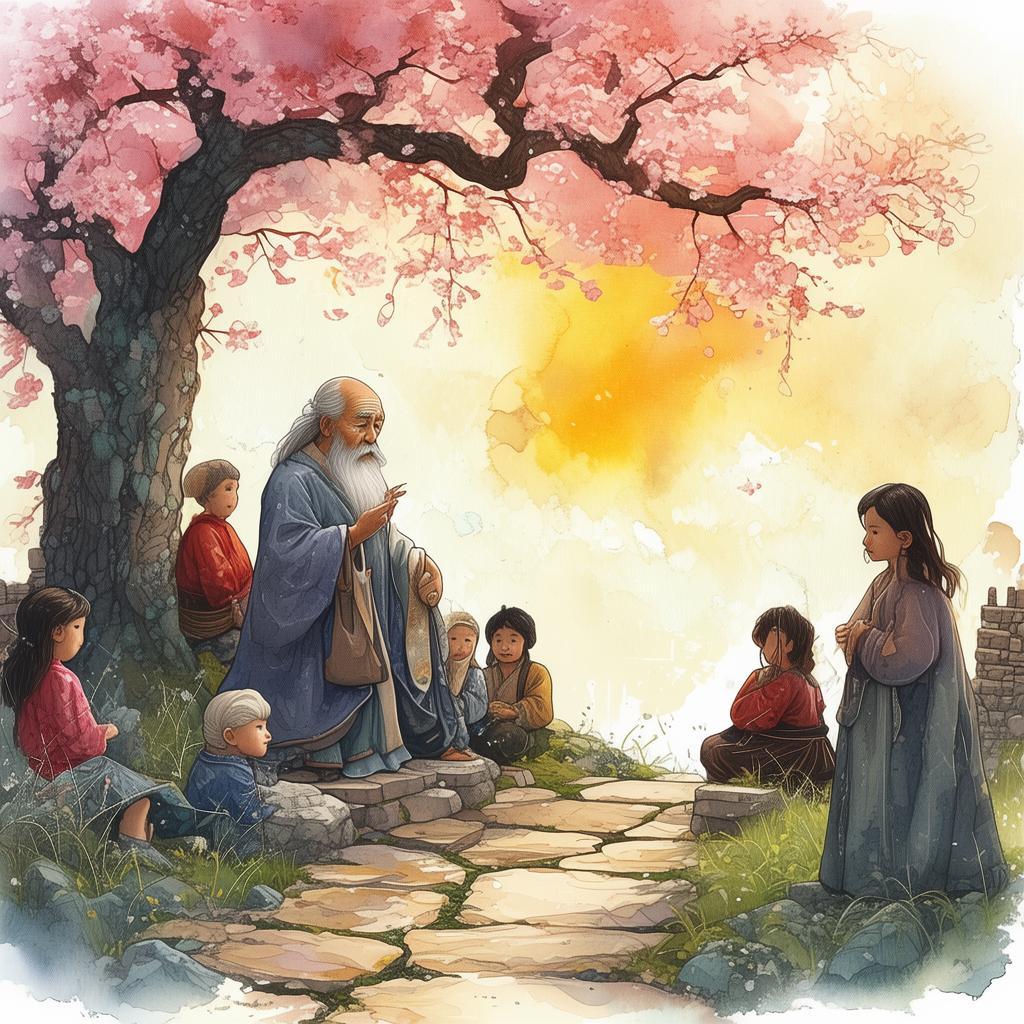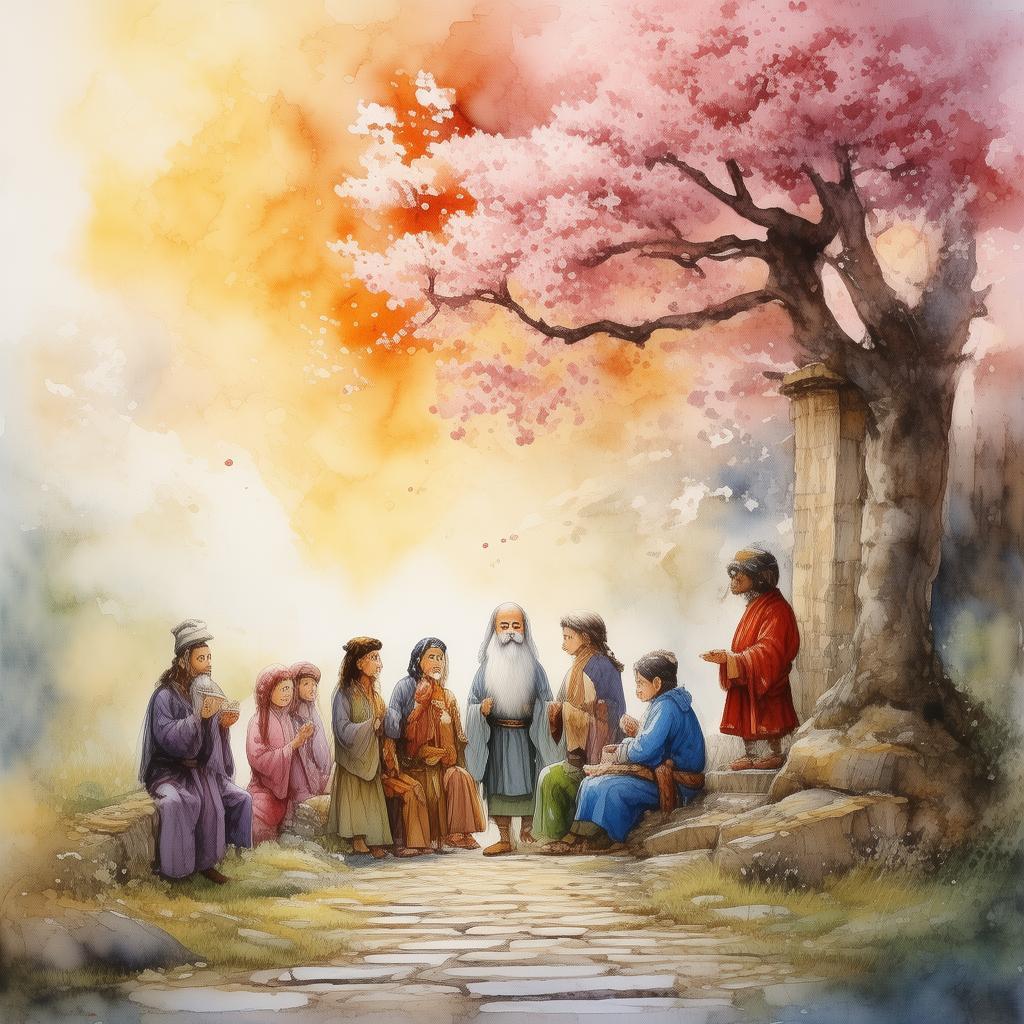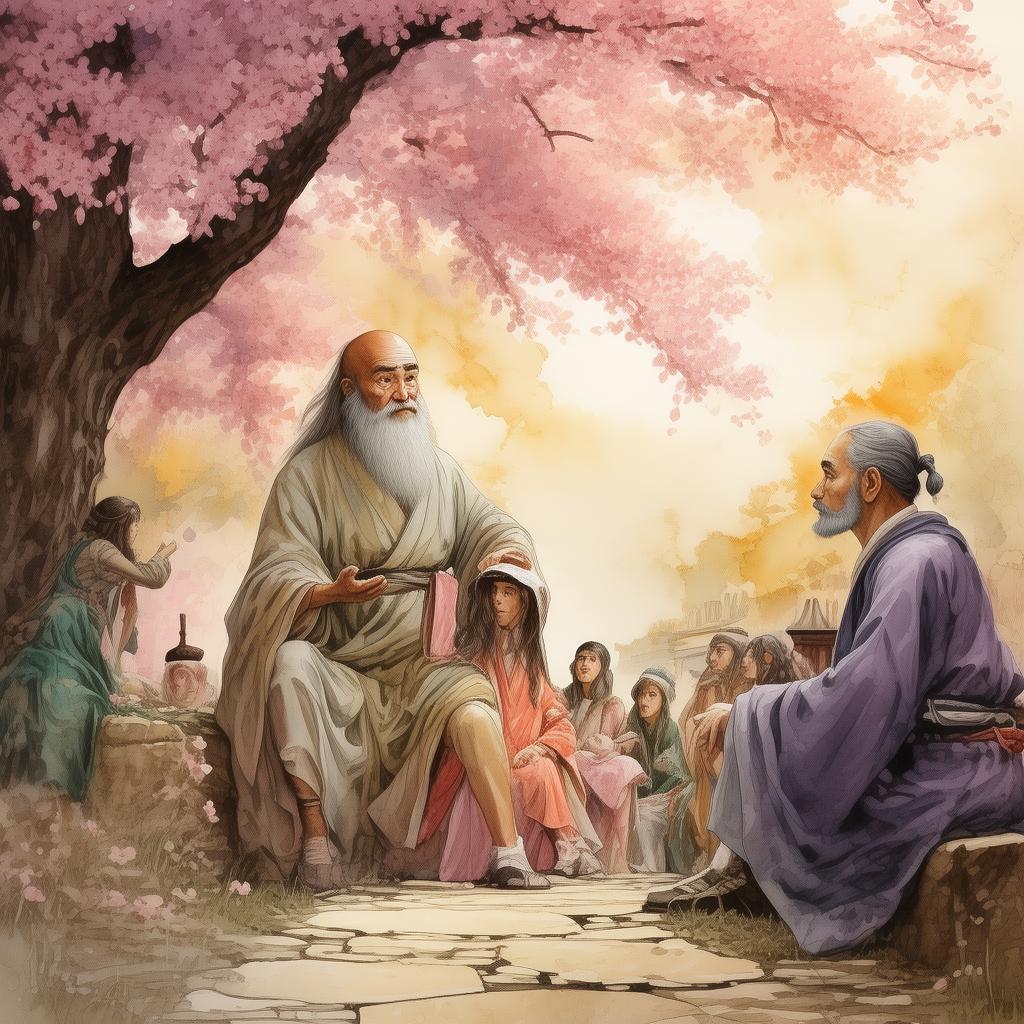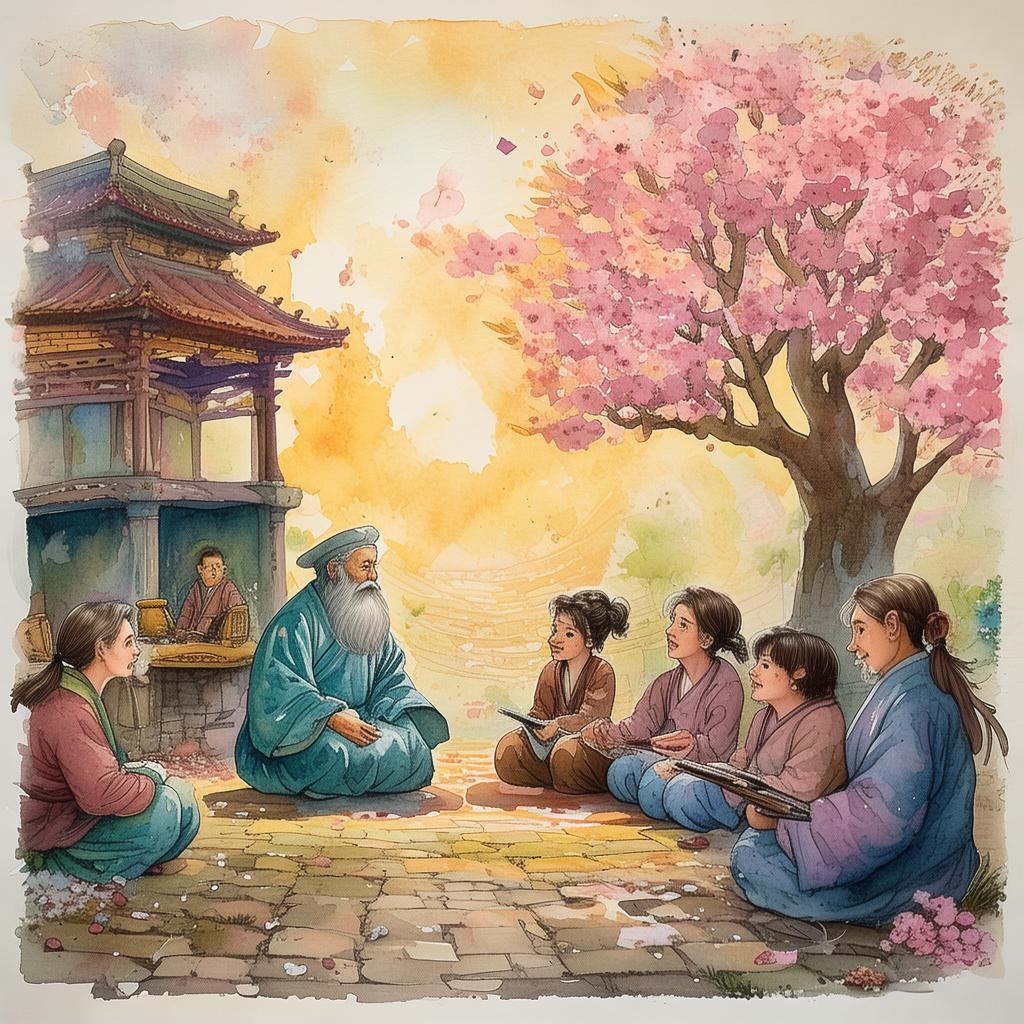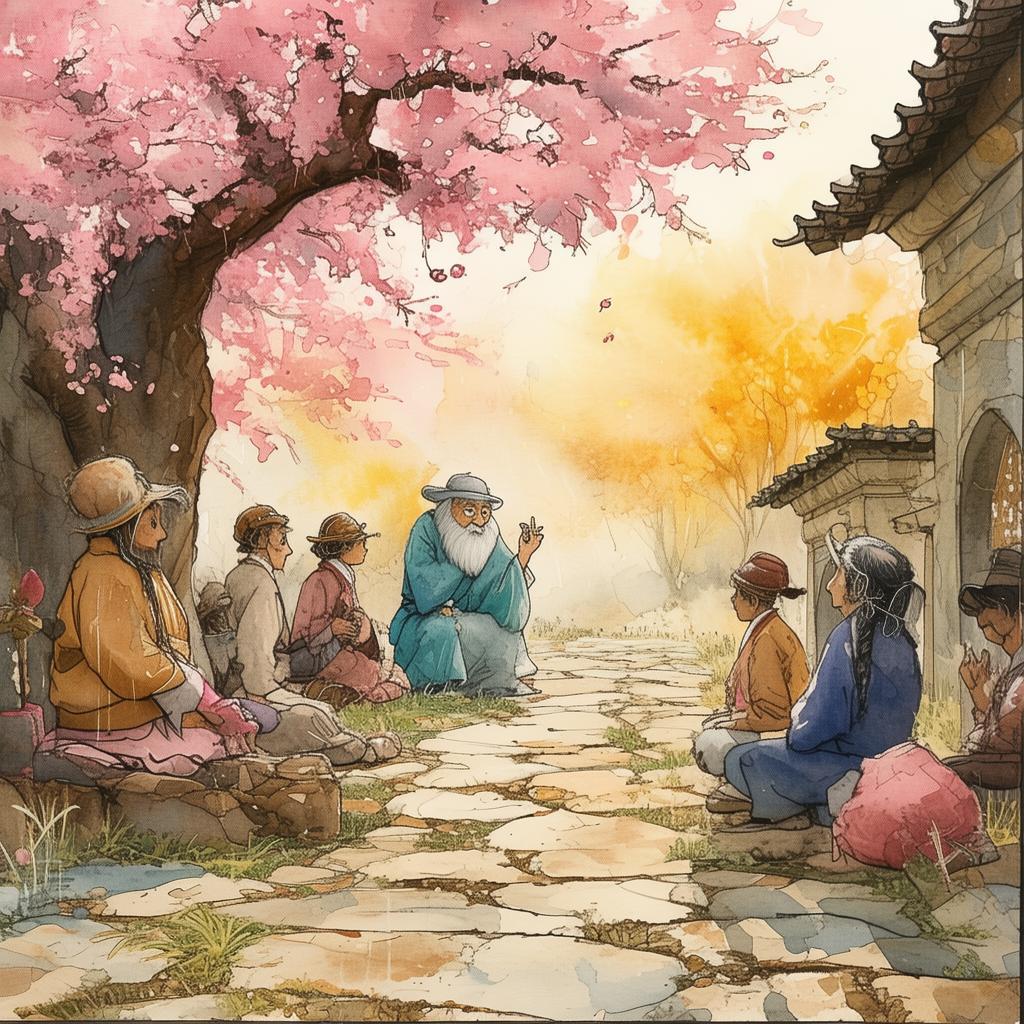The Unintended Emperor: A Throne of Neglect
In the heart of the ancient empire of Jin, there lay a tale of destiny and the unintended consequences of power. The empire, once a beacon of prosperity and wisdom, had seen better days. The throne of Jin was a symbol of grandeur and authority, but beneath its ornate surface, decay and neglect were seeping in.
The story begins with a young man named Feng, a humble scholar from a distant province. Feng was known for his wisdom and his modesty, traits that set him apart from the corrupt courtiers who surrounded the current ruler, Emperor Ming. Feng was a man of simple tastes, content with his studies and the company of his few friends.
One fateful day, as Feng was returning to his studies, he stumbled upon a hidden chamber beneath the palace. Inside, he found a scroll that spoke of a prophecy: "The true ruler of Jin shall be found in the heart of the empire, and he shall reign not by might, but by wisdom and justice." The scroll was old and worn, but its words resonated deeply with Feng.
As he read the scroll, a sudden earthquake shook the palace. The emperor, Emperor Ming, was struck by lightning and died instantly. The courtiers, in their haste to secure their own power, declared Feng the new emperor, citing the scroll as divine justification.
Feng, taken aback by the turn of events, initially refused the throne. However, the courtiers, fearing the rise of a just ruler, threatened to turn the people against him. With no choice, Feng reluctantly accepted the crown, vowing to rule with wisdom and justice.
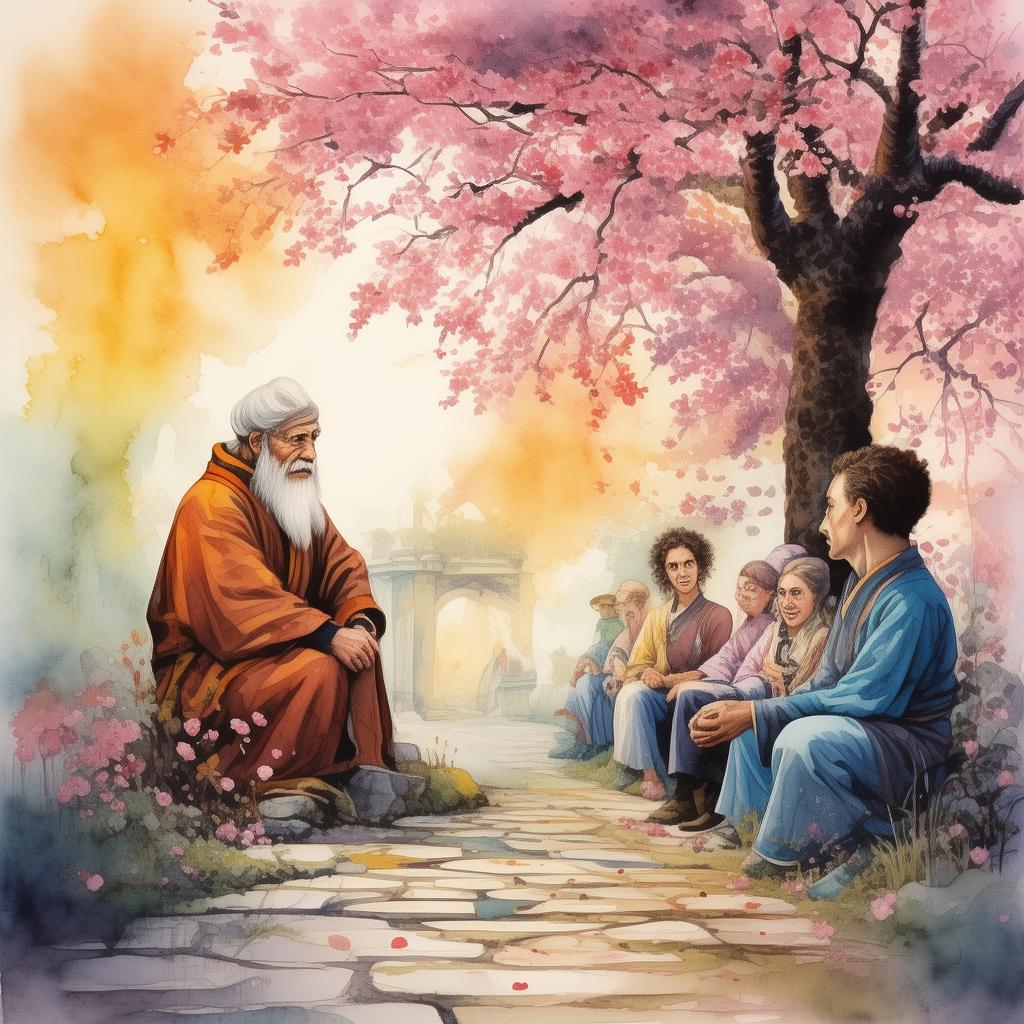
As Emperor Feng ascended the throne, he found that the empire was in dire straits. The people were suffering from corruption, and the land was ripe for rebellion. Feng knew that he had to act quickly, but he was soon disillusioned by the reality of his situation.
The courtiers, who had supported his rise to power, were merely using him to secure their own positions. They manipulated him with lies and deceit, and he was soon surrounded by a court of sycophants and traitors. Feng's attempts to reform the empire were met with resistance and betrayal.
One of his closest advisors, a man named Li, was revealed to be a spy for the neighboring kingdom, plotting to take over Jin. Li had infiltrated the court, gaining Feng's trust, and was instrumental in undermining the emperor's efforts to restore order.
As the empire teetered on the brink of collapse, Feng realized that his throne was a burden rather than a blessing. He was neglecting his studies and his family, and the weight of his responsibilities was suffocating him. The once peaceful scholar had become a prisoner in his own palace.
One night, as Feng walked the empty halls of the palace, he encountered a mysterious figure. It was the old man who had given him the scroll, the one who had foreseen his destiny. The old man advised Feng to look within himself for the true source of his power.
Feng, inspired by the old man's wisdom, began to seek out the truth behind the prophecy. He traveled to the provinces, meeting with the common folk and listening to their tales of suffering. He discovered that the real power of the throne lay not in the crown itself, but in the hearts of the people.
Returning to the palace, Feng confronted the courtiers and exposed their treachery. He dismissed them from his court and began to implement reforms, focusing on the welfare of the people. He restored justice, rebuilt the economy, and rekindled the spirit of the empire.
The people, grateful for his efforts, rallied behind Feng. He became a symbol of hope and a beacon of light in a world that had been shrouded in darkness. The throne of Jin, once a throne of neglect, was now a throne of justice and prosperity.
Feng's reign was marked by peace and prosperity, and he was revered as a wise and just ruler. The empire flourished under his leadership, and the prophecy was fulfilled. Feng, the unintended emperor, had become the true ruler of Jin, not by might, but by wisdom and justice.
The Unintended Emperor: A Throne of Neglect is a story of power, betrayal, and redemption. It is a tale that reminds us that true leadership lies not in the trappings of authority, but in the heart and the actions of the leader.
✨ Original Statement ✨
All articles published on this website (including but not limited to text, images, videos, and other content) are original or authorized for reposting and are protected by relevant laws. Without the explicit written permission of this website, no individual or organization may copy, modify, repost, or use the content for commercial purposes.
If you need to quote or cooperate, please contact this site for authorization. We reserve the right to pursue legal responsibility for any unauthorized use.
Hereby declared.
